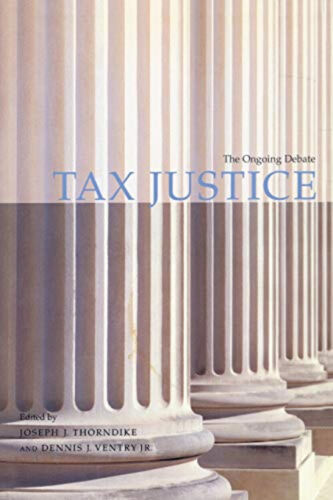EBay And Section 230: The Ongoing Debate On Banned Chemical Sales

Table of Contents
Section 230: Immunity and the Challenges for Online Marketplaces
Section 230 of the Communications Decency Act of 1996 provides significant legal protection to online platforms. It shields them from liability for user-generated content, allowing them to moderate content without becoming publishers or speakers themselves. This "good Samaritan" clause encourages platforms to actively remove illegal or harmful content. However, it also creates a complex legal landscape for companies like eBay.
The line between proactive moderation and potential liability is blurry. If eBay actively monitors and removes listings, they risk being seen as publishers, losing their Section 230 protection and facing potential lawsuits. Conversely, failing to actively remove illegal listings could expose them to significant legal and ethical repercussions. This creates a difficult balancing act.
- Liability concerns for eBay: Active monitoring could lead to lawsuits if they miss a listing or mistakenly remove a legitimate one.
- Difficulty in identifying and removing all listings: The sheer volume of listings on eBay makes comprehensive monitoring incredibly challenging. Clever disguising or mislabeling of banned chemicals makes detection even harder.
- Balancing freedom of speech with public safety: Section 230 aims to protect free speech, but this must be balanced against the need to prevent the sale of dangerous chemicals that threaten public health and safety.
eBay's Policies and Enforcement Regarding Banned Chemicals
eBay maintains a detailed list of prohibited and restricted items, which includes a wide range of banned chemicals. These policies aim to prevent the sale of substances that are hazardous, controlled, or otherwise illegal. eBay employs a combination of automated systems and user reporting to identify and remove listings violating these policies. These systems use AI and machine learning to scan listings for keywords and descriptions associated with banned chemicals.
However, the effectiveness of eBay's current enforcement is debatable. While AI and machine learning are helpful, they are not foolproof. Sellers often use creative methods to circumvent detection, such as using obscure chemical names or mislabeling items.
- Examples of banned chemicals: This includes, but is not limited to, certain pesticides, precursor chemicals for explosives, and various controlled substances.
- The role of AI and machine learning: These technologies are crucial for identifying potential violations at scale, but require constant refinement to stay ahead of evasive tactics.
- Challenges in detecting cleverly disguised or mislabeled listings: Sophisticated sellers often employ techniques to make it difficult to identify banned chemicals.
- eBay's response to user reports: User reports are a critical part of eBay's enforcement strategy, yet the process and response time can vary.
The Ongoing Debate: Balancing Free Speech with Public Safety
The sale of banned chemicals online raises a crucial ethical and legal debate: how much responsibility do online marketplaces bear in preventing these sales? Arguments for stronger regulation emphasize the public safety concerns associated with readily available dangerous chemicals. Conversely, arguments against increased regulation highlight concerns about censorship and potential overreach by platforms, impacting small businesses and sellers.
- Arguments for increased platform responsibility: Proponents argue that platforms have a moral and societal obligation to actively prevent the sale of dangerous goods.
- Concerns about censorship and potential overreach: Critics worry that overly aggressive moderation could stifle legitimate commerce and infringe on free speech.
- The role of government regulation: Government intervention might be necessary to establish clear guidelines and legal frameworks for online marketplaces.
- The impact of inconsistent enforcement: Lack of standardized enforcement across different platforms creates loopholes and inconsistencies in regulating banned chemicals.
Potential Solutions and Future Directions
Improving the detection and removal of banned chemical listings requires a multifaceted approach. This includes refining existing technologies, fostering collaboration, and enhancing user engagement.
- Improved AI algorithms: Investing in more sophisticated AI and machine learning algorithms is crucial for detecting even the most cleverly disguised listings.
- Enhanced collaboration: Stronger partnerships between online platforms, law enforcement, and regulatory bodies are essential for sharing information and coordinating enforcement efforts.
- Increased user education and reporting mechanisms: Educating users about the dangers of banned chemicals and providing user-friendly reporting mechanisms will enhance detection.
- Development of industry-wide best practices: Establishing industry standards for identifying, reporting, and removing listings of banned substances will create a more effective and consistent approach.
Conclusion: eBay, Section 230, and the Future of Banned Chemical Sales Online
The sale of banned chemicals on online marketplaces like eBay presents a complex challenge, requiring a careful balancing act between Section 230 protections, free speech principles, and public safety concerns. While eBay has implemented policies and systems to address this issue, the effectiveness of these measures is still under debate. Continued discussion, collaboration, and technological advancements are necessary to create a safer online environment while upholding fundamental rights. We urge readers to stay informed about this evolving debate and to actively report any suspicious listings of banned chemicals on eBay and other online marketplaces. Your vigilance is crucial in helping to keep these dangerous substances off the market.

Featured Posts
-
 Spring Training Abs Challenge Cody Poteets Chicago Cubs Victory
May 16, 2025
Spring Training Abs Challenge Cody Poteets Chicago Cubs Victory
May 16, 2025 -
 Bombay Hc Rejects Plea Challenging Dial 108 Ambulance Contract
May 16, 2025
Bombay Hc Rejects Plea Challenging Dial 108 Ambulance Contract
May 16, 2025 -
 Game 1 Analysis Tatum Credits Knicks Performance Against The Celtics
May 16, 2025
Game 1 Analysis Tatum Credits Knicks Performance Against The Celtics
May 16, 2025 -
 Boston Celtics Sold Analyzing The 6 1 Billion Private Equity Deal
May 16, 2025
Boston Celtics Sold Analyzing The 6 1 Billion Private Equity Deal
May 16, 2025 -
 Padres On Deck A Strong Start To The 2025 Season
May 16, 2025
Padres On Deck A Strong Start To The 2025 Season
May 16, 2025
